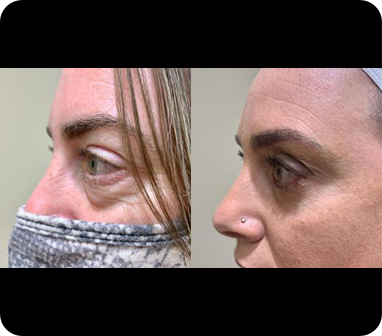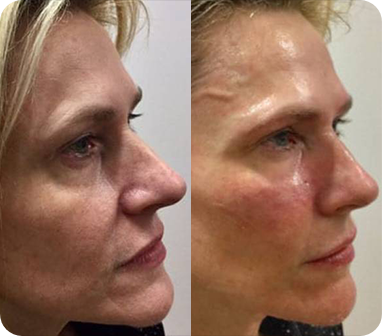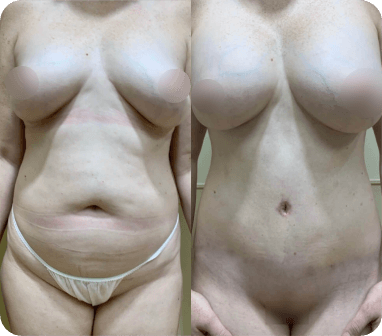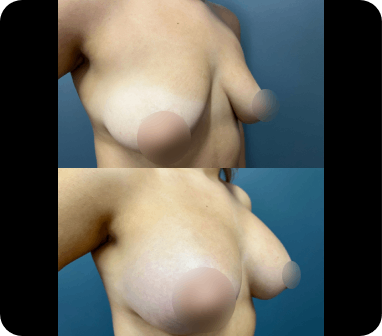Gynecomastia
Conveniently located to serve the areas of Houston, Bellaire, Kingwood, The Woodlands and Cypress, TX

Gynecomastia is a condition in which males develop excess breast tissue. This can cause the chest to look feminized, or abnormally large. It can lead to significant psychological distress, causing embarrassment and self-consciousness for many individuals. To address this problem, liposuction and tissue excision can remove excess fat and glandular tissue, sculpting the chest contours to create a more masculine appearance.
At Kronowitz Plastic Surgery, Dr. Steven J. Kronowitz offers gynecomastia surgery to patients in the Houston area. A renowned plastic surgeon with over 25 years of experience, Dr. Kronowitz is dedicated to improving the lives of his patients with expertly performed cosmetic procedures. For more information, call (713) 523-0300 or fill out this form.
Contents
About Gynecomastia
Gynecomastia is characterized by enlarged breast tissue in men. It can also tenderness, overly-sensitive nipples, and discomfort. Men of all ages can have gynecomastia, though it typically develops in newborns, adolescent men, and older men. These age groups are disproportionately affected by the condition because its cause is hormonal imbalance. In developing and aging men, fluctuations in the hormones estrogen and testosterone can occur. When these hormones are out of balance, it can cause an abnormal amount of breast tissue to develop.
Some of the underlying causes for this hormonal imbalance include: (1)
- Certain medications
- Puberty
- Aging
- Certain health conditions (e.g. hypogonadism)
Many men with gynecomastia are displeased by the aesthetic appearance of their chest. For adolescents, it can cause embarrassment in a stage of life when self-esteem is especially sensitive. Gynecomastia often subsides on its own, but when it persists it can cause prolonged psychological distress. In some cases, men with gynecomastia can treat it by addressing the underlying causes. Otherwise, gynecomastia surgery is a direct and effective option. Studies have shown that treating gynecomastia can improve patients’ physical functioning and mental health. (2) The details of the procedure are defined by the patient’s particular symptoms.
Excess Fat
If excess fat is the primary issue, Dr. Kronowitz can use liposuction to remove it. Liposuction involves making small incisions in the treatment area, through which a tool called a cannula is placed to break up and remove the excess tissue with suction. This reduces the overall volume of the chest and has a flattening effect.
Excess Skin and Tissue
If excess skin and tissue are present, surgical excision may be necessary. This technique can reduce the size of the area and tighten the skin for a firmer-looking chest. Dr. Kronowitz can also use these incisions to reshape and reposition the nipple and areola, optimizing the appearance of the nipples to better fit the new chest contour.
Where excess fat, skin, and tissue are present, Dr. Kronowitz will combine these techniques.
Benefits of Gynecomastia Surgery
The benefits of gynecomastia surgery include:
- A more masculinized chest contour
- Reduced nipple discomfort
- Eliminated social embarrassment
- Boosted self-esteem
- Regained confidence in your own body
Who is a Candidate for Gynecomastia Surgery?
Gynecomastia surgery works best for patients who have had symptoms for an extended period and see no change, even with weight loss. An ideal candidate will be in relatively good health and close to their target body weight. Having a healthy body that can heal properly will increase your chances of a successful procedure. If you are unable to maintain a steady weight before and after your procedure, your results may change and you could develop gynecomastia symptoms again. A good candidate will also have realistic expectations about what gynecomastia surgery can do for them.
Personal Consultation
At your personal consultation, Dr. Kronowitz will help you understand how gynecomastia surgery will benefit you. He will perform a physical examination of the treatment area, walk you through the steps of the procedure, and explain the treatment process in depth. If you have any questions, he will answer them and address any concerns you may have. Dr. Kronowitz will use this information to create a personalized treatment plan.
To schedule your consultation with Dr. Kronowitz, call (713) 523-0300 or visit our contact page.
Preparation
We will provide you with detailed preoperative instructions. These help prepare your body for surgery and encourage rapid healing. Following these instructions closely is a step that you can take to ensure the most favorable results.
Here are some general guidelines for preparation:
- Maintain or begin a healthy diet and active lifestyle
- Stay hydrated throughout the treatment process
- Avoid blood-thinning medications, and certain herbal supplements to reduce bleeding
- Quit nicotine for the duration of your treatment, including the recovery period, to promote optimal healing
Gynecomastia Surgery Procedure
Before your surgery, we will administer general anesthesia to prevent discomfort. Gynecomastia surgery is an outpatient procedure, so you may go home on the same day as your treatment.
If your surgery involves only liposuction, Dr. Kronowitz will begin by making the small incisions that give him access to the excess fat. Through these incisions, he will break up and prepare the fat for removal. Then, he will use suction to remove it.
If your procedure involves skin and tissue removal, Dr. Kronowitz will make the incisions based on the way gynecomastia has affected your chest. He will make the most discreet incisions possible while still providing effective results. Using these incisions, he will remove the excess skin and perform nipple and areola reconstruction, if necessary. He will remove the excess tissue and perform liposuction if it is a combined procedure. Finally, he will pull the remaining skin tightly over your chest in the process of closing your incisions.
Recovery
When the anesthesia has worn off and you are in a stable condition, you can go home. Be sure to arrange a ride home from our facilities, as you may still be under the residual effects of anesthesia. If someone can look after you on the first night of recovery, we highly recommend taking this precaution.
In the days immediately following your surgery, you may have bruising, swelling and sensitivity around your treatment area. Dr. Kronowitz will prescribe medication to reduce these symptoms. We will give you instructions for looking after your incisions and promoting healthy healing. Recovery after gynecomastia surgery typically involves wearing a compression garment to minimize swelling and support the healing process. Patients should avoid strenuous activities for a few weeks.
Most patients can return to work and regular daily activities within a week, although individual recovery times may vary. While you rest and heal at home, you should stand up and take light walks to encourage blood flow and faster healing. We will schedule a follow-up appointment with Dr. Kronowitz to monitor your healing.
Results
Your results will continue to improve as your swelling gradually goes down over several months. It can take up to six months for your final results to reveal themselves. You will have some visible scars, though they will slowly fade over time. When you recover from your treatment, you will be able to stand proud with your newly flat and firm chest. Your results should be long-lasting. If the underlying cause of your gynecomastia persists, you may develop enlarged breast tissue again. However, the transformative effects of your surgery will help to decrease this possibility.
How Much Does Gynecomastia Surgery Cost in Houston?
The cost of your gynecomastia surgery will depend upon the details of your treatment plan. We can discuss these topics further at your consultation. To learn more about how much gynecomastia surgery costs at Kronowitz Plastic Surgery, call (713) 523-0300 or contact us online.
FAQ
Does gynecomastia go away on its own?
Gynecomastia can resolve itself, though this is not guaranteed. If the symptoms of your gynecomastia bother you, and the tissue has remained at a stable size for several years, surgery might be the best option for treatment.
Is gynecomastia surgery painful?
During gynecomastia surgery, patients are usually under general anesthesia, ensuring comfort throughout the procedure. Post-surgery, it is normal to experience some swelling, bruising, and discomfort, but any pain is typically well-managed with prescribed medication. Most patients find that any discomfort subsides within a few days, and they can resume their normal activities within a week or two.
What are the treatment options for gynecomastia?
The most common and effective treatment option for gynecomastia is male breast reduction surgery. This procedure involves the removal of excess breast tissue and/or fat through techniques such as liposuction or excision. Liposuction is typically used when the enlargement is primarily due to fatty tissue, while excision is performed when there is an excess of glandular tissue. Your surgeon will assess your case and determine the most suitable approach for you.
Can gynecomastia be treated non-surgically?
While non-surgical options such as hormonal therapy and lifestyle changes can be effective for certain cases of gynecomastia, they are not always the best solution. In many cases, surgical intervention is necessary to achieve the most effective results. It’s important to consult with a qualified plastic surgeon who can evaluate your specific condition and recommend the most appropriate treatment plan.
References
- Swerdloff RS, Chiu Ming Ng. Gynecomastia: Etiology, Diagnosis, and Treatment. Nih.gov. Published July 7, 2019. https://www.ncbi.nlm.nih.gov/books/NBK279105/
- Holzmer SW, Lewis PG, Landau MJ, Hill ME. Surgical Management of Gynecomastia. Plastic and Reconstructive Surgery – Global Open. 2020;8(10):e3161. doi:https://doi.org/10.1097/gox.0000000000003161




